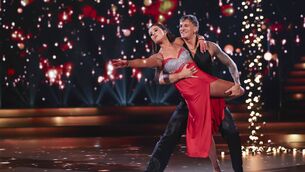Culture That Made Me: Irish actress Olwen Fouéré picks her touchstones

Olwen Fouéré is part of the Tradition Now festival at Dublin’s National Concert Hall. Picture: Rich Gilligan
Olwen Fouéré, 71, was born in Galway to French parents, growing up on the Aughris Head Peninsula. She has performed in lead theatrical roles across the globe, including London’s West End. In 2014, she received the prestigious Herald Archangel Award for her project and her outstanding contribution to the Edinburgh Festivals. Recent screen credits include and She will perform at the Tradition Now 2025 festival in Our Time in Space: A Tribute to Tim Robinson, Dublin’s National Concert Hall, 2pm, Sunday September 28. See: www.nhc.ie.




